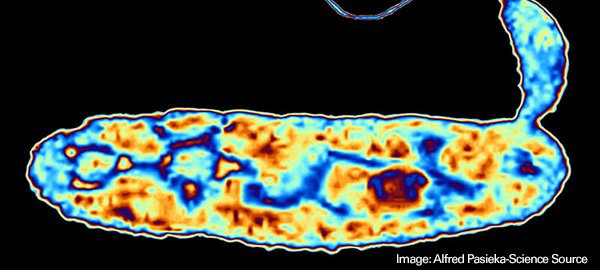DARPA, the Defense Advanced Research Projects Agency, is funding research to use germ-eating microbes to attack other microbes resistant to antibiotic treatment. The best-studied microbe is bacterium called Bdellovibrio, which attacks microbes six times its own size, and has been useful in attacking 145 out of 168 human pathogens tested. Other germ-eating bacteria include Myxococcus and Vampirococcus. These microbes normally live in the human body but at low levels. Researchers do not believe germ-eating microbes will ever replace antibiotics, because humans can develop an immune response to the microbes, preventing them from being used more than once.
Key Takeaways:
- A bacterium known as Bdellovibrio was able to prey upon 145 of the 168 human pathogens that it was tested on.
- Scientists were unable to get pathogens to develop a resistance to the Bdellovibrio bacterium, which is a problem with antibiotic use.
- Although this could be a useful treatment for an infection that is not responding to antibiotics, it will never replace antibiotics
“Lab studies that his agency has funded show that the predatory bacteria will attack all sorts of nasties, including bacterial lung infections, the plague and deadly germs that have developed resistance to antibiotics.”




